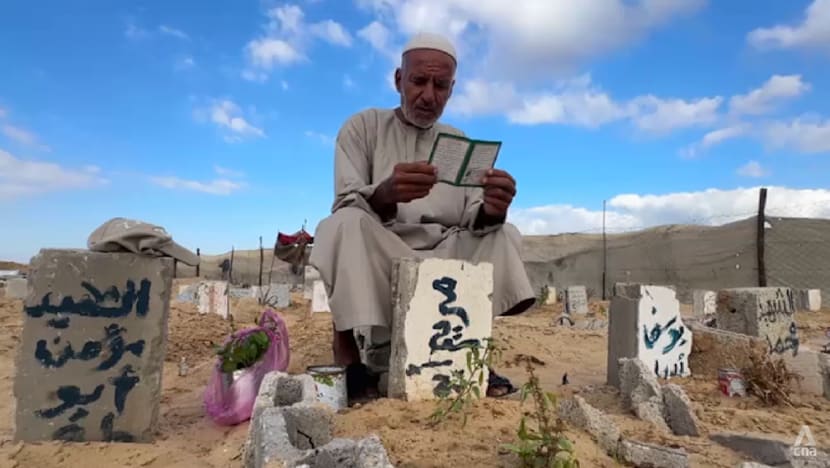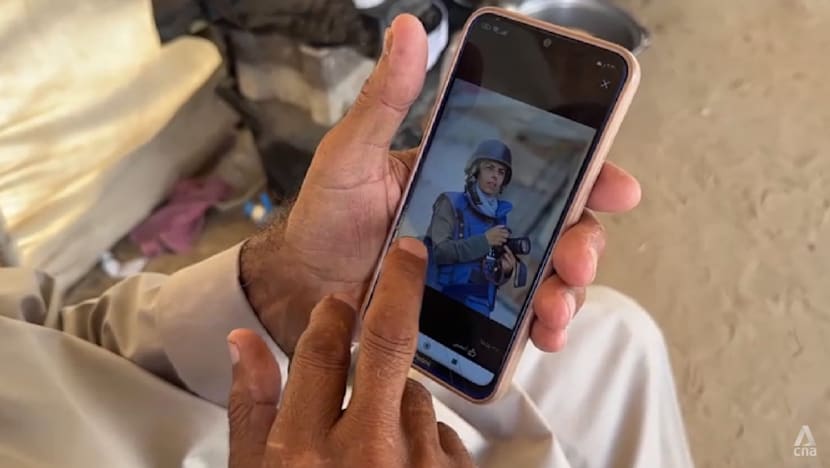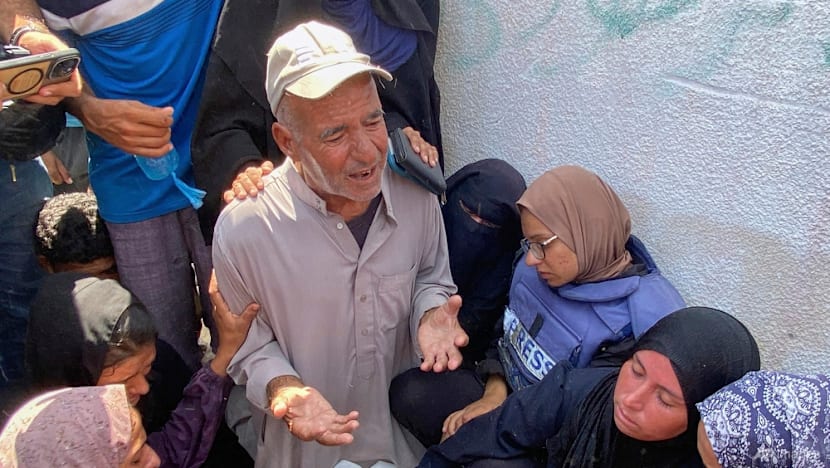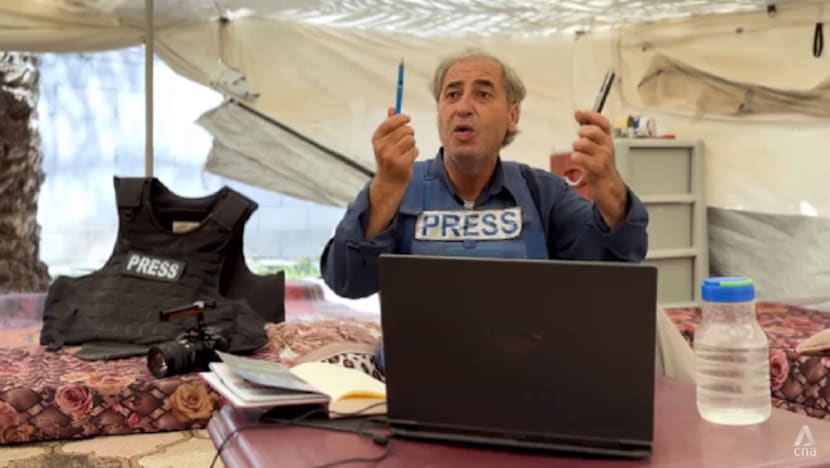‘We carry no weapons’: Gazan journalists struggle to cover the war without becoming the headlines
Palestinian journalists are paying the highest price to get the word – and the images – of the two-year war in Gaza out to the world.

Riyad Abu Daqqa prays at the grave of his daughter Mariam Abu Daqqa, a photojournalist who was killed in an Israeli strike on Nasser Hospital in Khan Yunis, southern Gaza.

This audio is generated by an AI tool.
GAZA: As Israeli drones buzzed overhead, a grieving father stood over the grave of his daughter.
Mariam Abu Daqqa was one of five journalists killed last month in an Israeli strike on Nasser Hospital in Khan Yunis in southern Gaza.
The 33-year-old was one of just a few female war correspondents working in the war-torn enclave. She was also a mother, a sister and an aunt.
Mariam understood the dangers of reporting from the Palestinian territory, said her father Riyad Abu Daqqa, as he prayed at her grave.
But she was determined to document the bloodshed on the ground and convey the suffering of Gazan civilians to the world.
“After she graduated from university, she told me: 'Dad, I want to become a journalist.' I told her journalism is exhausting and very difficult,” he recalled, his voice cracking.
“She told me she had made her decision. I didn’t want to stand in her way. So, I told her: 'If this is your passion, you have my blessing'.”

Mariam worked as a freelance photojournalist for multiple news agencies, including the Associated Press.
On Aug 25, she rushed to Nasser Hospital – where she had often reported throughout the war – after an initial Israeli strike.
She was killed in a second strike that followed about 10 minutes later.
Nearby, Reuters contractor Hussam al-Masri was operating a live camera position. He was killed on the spot. His broadcast froze moments before the blast.
Other casualties were Al Jazeera cameraman Mohammad Salama and freelancers Moaz Abu Taha and Ahmed Abu Aziz.
In total, 22 people were killed, including medical staff, patients and civilians.
The Israeli military said it targeted what it believed to be a camera used by Hamas to observe its troops and denied intentionally striking journalists.
The attack drew international condemnation.

DEADLIEST PLACE FOR JOURNALISTS
At least 248 journalists have been killed in Gaza since the current war began nearly two years ago, more than in any other conflict in history, according to the United Nations.
In fact, more journalists have been killed in Gaza than both World Wars, the Korean War, the Vietnam War, the wars in Yugoslavia and the war in Afghanistan combined, a study by Brown University in the United States found.
As the Israel-Hamas war lurches towards its second anniversary, Gaza remains shut off to outsiders – Israel has banned international news agencies from entering the strip.
This means Palestinians are the only press covering the war from Gaza.
The Foreign Press Association in Israel, which represents international media operating in Israel and the Palestinian territories, has been petitioning the Israeli Supreme Court to lift the ban, but to no avail.
“Journalism is not a crime. Israel must stop killing journalists in Gaza and give the foreign press free and independent access to the territory,” the association said in a statement earlier this month.
Many foreign correspondents and news agencies reporting on the war are based in Israel, using footage and interviews provided by their Palestinian colleagues in Gaza.
THE TOLL OF WAR
Meanwhile, journalists on the ground are trying to cover the conflict without becoming the story themselves.
“We are human beings, we are only covering the truth,” said Marwan Al-Ghoul, a producer with US broadcaster CBS News.
“We are civilians. We carry no weapons other than the pen and the camera. Yet, we are met with shelling and death.”
The Palestinian has been displaced multiple times by the war and currently lives and works in Deir al Balah, a city in central Gaza.
He said he constantly worries about the safety of his loved ones, and struggles with the difficulty of securing food for his family and finding fuel for his car so he can drive to work.

Additionally, there is the psychological toll of bearing witness to pain and tragedy.
"Every day when I go to the hospital to document the war, I would find children torn apart, pregnant women injured,” Marwan said.
“(Such) scenes leave a deep mark on me, to the point of tears. I cannot bear to see children dismembered and burned."
Such horrors are a price civilians and journalists – and parents such as Riyad – say they should not have to pay.
“The hospital should have never been targeted. There were nurses, doctors, patients and paramedics there,” said Riyad.
“The strike on (Nasser) hospital was inexcusable. These were journalists who carried out their duty. If they don't carry the message, who will?”














